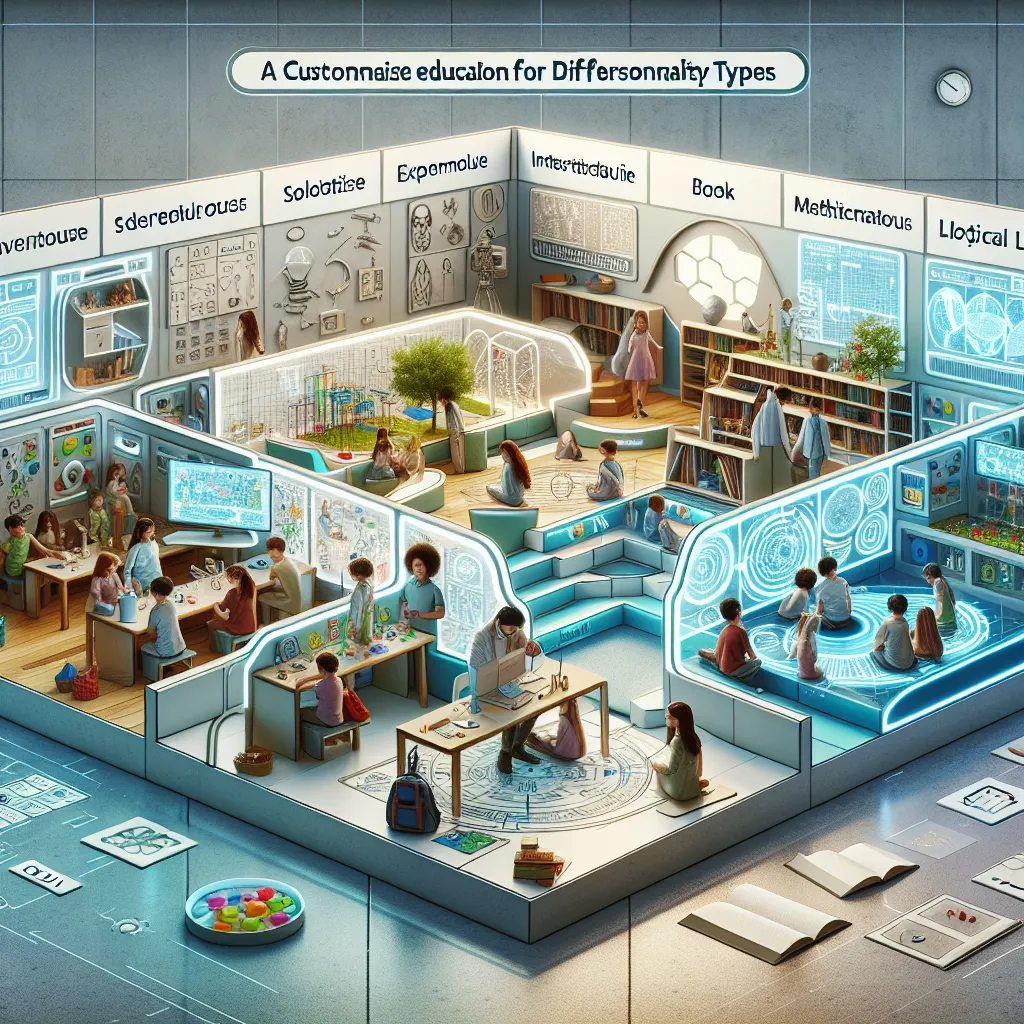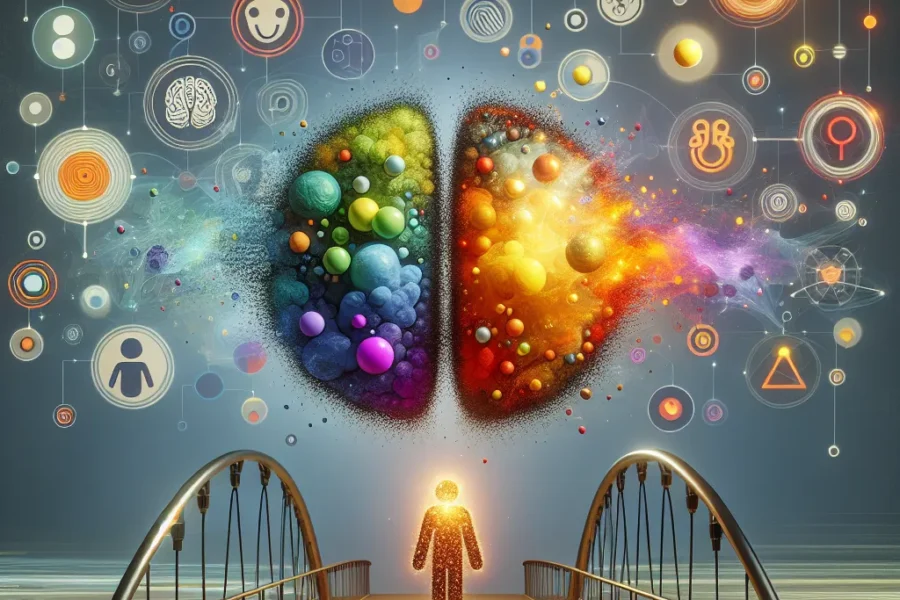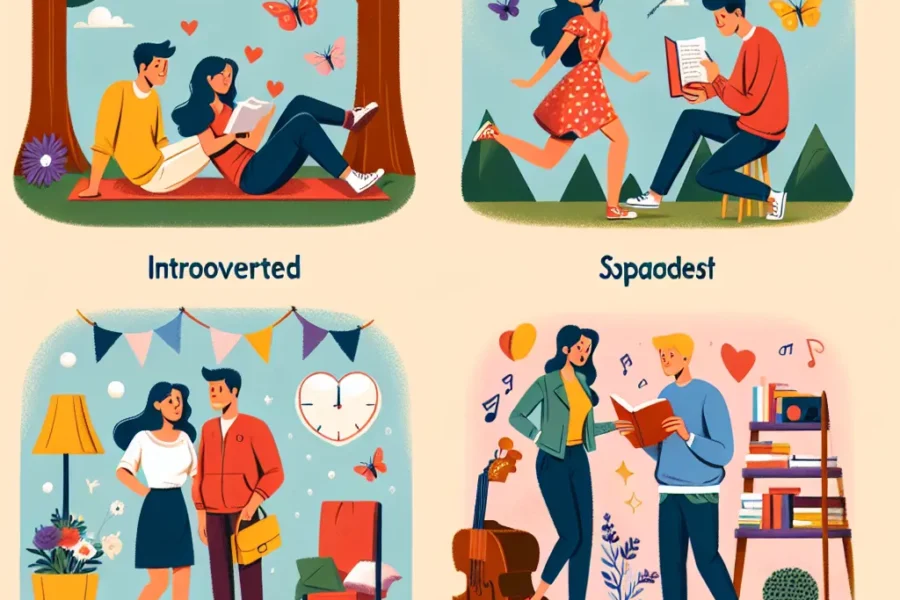Customizing Education: Tailoring Learning to Personality Types
Education is no one-size-fits-all journey. Each student is unique, with their own set of strengths, weaknesses, learning styles, and personality traits. Acknowledging this diversity is essential, as it guides educators to tailor learning experiences that resonate with each individual. Customized education based on personality types has become a focal point for progressive teaching strategies, promising a more engaging and effective educational journey.
Understanding Personality Types in Education
The concept of personality types dates back to the early 20th century, with Carl Jung’s psychological typology. Later, the Myers-Briggs Type Indicator (MBTI) expanded on these ideas, identifying 16 distinct personality profiles. Each type is characterized by preferences in how individuals perceive the world and make decisions. Although there are various models for categorizing personality types, MBTI remains among the most influential tools in educational settings.
Adapting to these personality types involves educators acknowledging that learners absorb and process information in different ways. For instance, an extraverted student may thrive in group discussions, whereas an introverted one might perform better with individual tasks. There’s no right or wrong trait, but there is tremendous value in recognizing these differences and adapting teaching methods accordingly.
Customizing Learning Experiences
1. Identifying Student Personality Types
Customizing education begins with identifying the personality types of students. Educators can utilize established personality assessments or observe behavioral patterns to classify how students interact with their learning environment. Teachers who invest time in understanding their students can design pedagogical approaches that accentuate each individual’s natural tendencies and learning preferences.
2. Building Curriculum Flexibility
The static, rigid curriculum is often a barrier to customized education. Instead, schools need flexible curricula that accommodate various learning modalities and personality types. This might require a broader range of teaching methods, such as lectures, hands-on activities, collaborative projects, or independent study time. Through flexible curriculum design, educators create a learning environment that is adaptive and responsive to the needs of different personality types.
3. Differentiated Instructional Strategies
Differentiated instruction is a teaching philosophy grounded in the idea that educational experiences must be tailored to students’ individual differences. Teachers who practice differentiated instruction modify the content, process, products, and learning environment to cater to the unique learning needs of each student. For instance, visual learners might benefit from diagrams and charts, while kinesthetic learners might excel through physical activities or experiments.
4. Encouraging Student Autonomy
Promoting self-directed learning is an effective strategy for fostering educational customization. When students are given the autonomy to make choices about their learning process—such as selecting topics of interest or choosing how to demonstrate their understanding—they are more likely to be engaged and motivated. This approach recognizes the individuality of students and empowers them to take an active role in their educational experience.
5. Cultivating a Growth Mindset
Personality types can sometimes lead to fixed beliefs about one’s abilities and potential. A growth mindset, however, encourages the belief that skills can be developed through hard work and perseverance. Teachers play a critical role in fostering a growth mindset by creating a classroom culture that values effort, encourages risk-taking, and sees failures as opportunities for learning and growth.
6. Implementing Personalized Feedback
Personalized feedback is a crucial component of customizing education. Feedback should be tailored to the personal progress, strengths, and challenges of each student. Timely and constructive feedback helps students understand their learning journey and realize the areas where they need to improve. It can also bolster their confidence by acknowledging their successes.
7. Leveraging Technology to Customize Learning
Educational technology offers powerful tools for customizing education to fit individual personality types. From adaptive learning software that adjusts to a student’s skill level to platforms that offer diverse learning materials (videos, articles, interactive simulations), technology can provide personalized learning experiences on a scale that was previously unattainable.
8. Supporting Social and Emotional Learning
Customizing education is not just about academic achievement; it also involves supporting the social and emotional well-being of students. Understanding personality types can help educators create a supportive classroom environment where students feel valued and understood. When students’ emotional needs are met, they are more likely to thrive academically.
9. Professional Development for Educators
For education to be truly customized based on personality types, educators themselves need ongoing professional development. Training programs should equip teachers with the understanding and resources to effectively cater to diverse personality types. Continued growth and learning for educators are fundamental to the successful implementation of custom education strategies.
10. Parent and Community Involvement
Finally, customizing education based on personality types requires a collaborative effort that involves parents and the community. Parents can provide valuable insights into their child’s personality and learning style, while community members can offer resources and real-world learning opportunities. By working together, stakeholders can create a more personalized and holistic educational experience for students.
Conclusion
In an age where personalization is at the forefront of many experiences—from shopping to entertainment—education is rightfully following suit. Customizing education to align with personality types is not only more engaging for students but also has the potential to dramatically improve educational outcomes. By embracing individual differences, educators can unlock the full potential of each learner, tailoring the educational journey to fit like a glove.
As we look to the future, it’s clear that dynamic, responsive, and individualized education will play a pivotal role in fostering a diverse society of critical thinkers, problem-solvers, and lifelong learners. Tailoring learning to personality types is not just an innovative teaching method; it’s an educational imperative that acknowledges and celebrates the diversity of human nature.



Leave a Comment